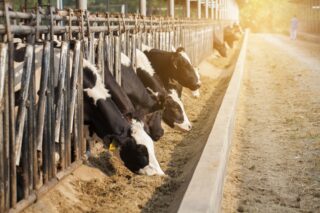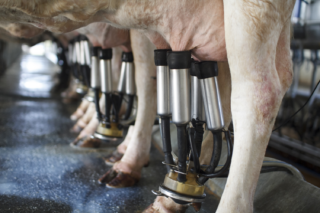Lowering methane emissions
while improving milk production
The ruminant industry is under continuous pressure to find solutions to lower methane emissions. Methane is an important greenhouse gas source contributing to global warming. If no measures are taken, our planet might be facing a global warming of more than 1.5°C, resulting in disastrous effects on livability on many places on Earth. Therefore, we need to find solutions to fundamentally reduce these emissions while ensuring a fair income for the farmer.

The rumen, home of methanogens
Methane is produced when feed is digested by livestock. The rumen, being the first of four stomachs in a cow, hosts an enormous number of microbial species. Methanogens are just one group among them. These ancient types of bacteria produce this unwanted methane gas in the rumen during a process called enteric fermentation.
The rumen, source of productiveness
The rumen is more than a source of unwanted gases. It enables cows to digest feedstuffs rich in fibers, such as grass, straw or whole-plant corn silage. The microbes residing in the rumen are responsible for the breakdown of feedstuffs a monogastric animal can hardly digest. In this way, rumen microbes produce volatile fatty acids and microbial protein, which the cow uses to turn feed ingredients into milk. Modulating the microbial composition of the rumen can lead to an optimization of the useful metabolites produced in the rumen – an option which should be harnessed to improve productiveness.

Double deal
Agrimprove experts believe it is our responsibility to take our share in lowering methane emissions, preferably with a positive impact on productivity. We want to help farmers all over the world to meet ecological and governmental requirements taking care of profitability as well. Our experts found solutions that could kill two birds with one stone – by lowering methane emissions of dairy cattle and simultaneously improving milk production. Studies are underway to validate their potential in different types of dairy cattle rations.
Introducing Anavrin
Developed to support the cow, the farmer, and the environment, Anavrin steers rumen fermentation in a direction that reduces hydrogen production. By doing so, it helps reduce the energy loss linked to methane formation and supports more efficient feed utilization.